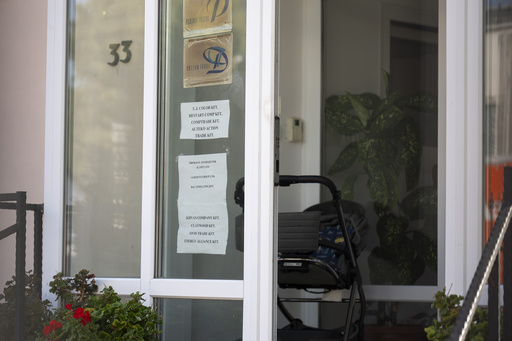ROME – A woman connected to the company involved in the recent explosions of pagers in Lebanon and Syria is reportedly being safeguarded by Hungarian secret services, according to her mother who spoke to The Associated Press on Friday.
Cristiana Bársony-Arcidiacono, the CEO of Budapest-based BAC Consulting, has not made any public appearances following the attacks that targeted Hezbollah and have been attributed to Israel.
Her mother, Beatrix Bársony-Arcidiacono, stated that her daughter had received unspecified threats and is currently under the protection of Hungarian secret services who advised her not to engage with the media.
The attacks, which occurred over two consecutive days, resulted in the death of at least 37 individuals and injuries to more than 3,000, including civilians. Hezbollah and the Lebanese government have pointed fingers at Israel for the assaults, with Israel neither confirming nor denying their involvement.
BAC Consulting, the Hungarian company under scrutiny, was authorized by Gold Apollo, a Taiwanese firm, to use its name on the pagers used in the first attack, although BAC Consulting was responsible for the production and design.
The Hungarian government clarified that the pagers supplied to Hezbollah did not pass through Hungary and that BAC Consulting served as an intermediary.
Bársony-Arcidiacono’s company, listed to specialize in various sectors including environment, development, and international affairs, had a revenue of $725,000 in 2022 and $593,000 in 2023.
She was born in Sicily and had an educational background at the University of Catania and University College London, before working in Paris, Vienna, and settling in Budapest in 2016.
Cristiana’s LinkedIn page shows her as a strategic adviser and business developer who has previously worked with organizations like the International Atomic Energy Agency and the CARE humanitarian agency.
A Hungarian physicist and former professor, Ákos Kövér, who collaborated with Bársony-Arcidiacono in the past, confirmed her enrollment at University College London where they jointly published articles.
This website uses cookies so that we can provide you with the best user experience possible. Cookie information is stored in your browser and performs functions such as recognising you when you return to our website and helping our team to understand which sections of the website you find most interesting and useful.
